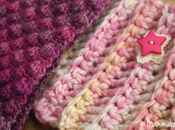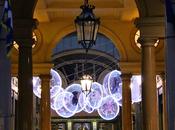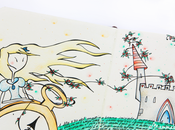Magazine Cucina
In Italia i modi di dire sono tanti e le espressioni che possiamo usare per rispondere non sono sempre quelle che troviamo sui libri di grammatica. Ho realizzato ciò, mentre scrivevo in chat con una mia cara amica americana che parla molto bene italiano. Presa dalla conversazione, non ho più fatto caso al mio italiano ed ho incominciato a rispondere molto colloquialmente.
Per cui quando mi ha detto : " grazie dei suggerimenti" mi è venuto naturale rispondere " ma figurati".
Se avessimo dovuto seguire i libri di lingua, la risposta sarebbe stata " prego"; se il rapporto fosse stato un po' più formale o meno colloquiale avrei detto " non c'è di che" ,ma visto il tono amichevole, mi è venuto spontaneo rispondere " ma figurati!" che vorrebbe dire : mi fa piacere aiutarti e chiedi quando vuoi. Questa risposta è un po' enfatica ed amichevol. Si potrebbe determinare un uso preciso di queste tre risposte che vogliono dire la stessa cosa? In realtà dipende dal contesto in cui ci si trova. Il contesto è importantissimo infatti ci sono delle situazioni dove " ma figurati!" vuol dire tutt'altro . Un esempio? Se vi trovaste di fronte ad un discorso tipo: " Pensa che Giovanni si è laureato in due anni!" e voi sapete che la cosa è impossibile, risponderete : " Ma figurati!" come a dire: " ma per favore, non è possibile tutto ciò! Come si fa quindi? Il contesto sarà il nostro grande alleato e al massimo improvvisiamo e diamo spazio alla creatività.
Creativity more creativity.
In Italy there are many idioms and expressions we can use and they can be different from the expressions you find in language books. I realized that while I was writing with one my dear American friend, who speaks very good Italian .
During the conversation I started answering very colloquially .
When she told me : " thanks for your advise", I instinctively answered "Ma figurati!"
The answer you find in language books would have been "prego". If the relationship had been more formal, I would have said " non c'è di che ". In this more friendly situation I replied "Ma figurati!". That means : "I'm glad to help you and I will help you always". This is a bit emphatic . There is a rule about how to answer "you are welocome " in Italian language ? It really depends on the context .
The context is very important. In some situations " Ma figurati " has a different meaning. An example ? If someone tells you: "John has finished his college in two years! " and you know this is impossible, the answer will be: " Ma figurati!" . Here the meaning is: " Come one! It's impossible! I cannot believe it" How do you then ? Context will help us and - in any case- you can rustle up with a bit of immagination .
Potrebbero interessarti anche :
Possono interessarti anche questi articoli :
-
Mamma, mi fai una sciarpa? (Due pattern semplici di sicuro successo) – Two easy...
Per anni ho sognato di inviare alle mie amiche lontane, per Natale, delle sciarpe fatte a mano da me, ma non ci sono mai riuscita. Leggere il seguito
Da Mammabook
BAMBINI, CUCINA, MATERNITÀ -
Un buon tacer non fu mai scritto. Silence is often the best answer -
Questo non è solo un proverbio, è una perla di saggezza.Un buon tacer non fu mai scritto. Credetemi, ci sono differenti possibilità di applicazione.Quali? Mi... Leggere il seguito
Da Xxlauraxx
CUCINA, RICETTE -
Hey, it's Christmas!
E' Natale Non c'è bisogno di aver paura A Natale Lasciamo passare la luce e aboliamo le zone d'ombra E nel nostro mondo di abbondanza Possiamo diffondere un... Leggere il seguito
Da Ny10014
CUCINA, DOVE MANGIARE, RICETTE -
Cibo da strada multietnico di qualità
New Rosticceria Rosolino Pilo - Piazza Rosolino Pilo, 28English version belowCibo multietnico ? La risposta è New Rosticceria Rosolino Pilo a Monteverde. Leggere il seguito
Da Romeyumood
CUCINA, DOVE MANGIARE -
Italian expression: Ma ci sei o ci fai?
Quante volte andando in giro o nelle situazioni di vita troviamo qualcuno strano? Partiamo dal presupposto che magari gli strani siamo noi, ma sicuramente ai... Leggere il seguito
Da Xxlauraxx
CUCINA, RICETTE -
Art Journal: Agosto - August
In questi giorni ho scoperto un’atroce verità, che le mamme più navigate di me conoscono benissimo: che anche con i bambini all’asilo il tempo a disposizione è... Leggere il seguito
Da Mammabook
BAMBINI, CUCINA, MATERNITÀ
I suoi ultimi articoli
-
Frasi per sopravvivere in Italia.The senteces to survive in Italy.
-
Galleria degli uffizi diventa virtuale. Prima tappa Milano. Virtual galleria degli uffizi. First step in Milam.
-
Abiti da sposa di Alessandro Angelozzi Couture
-
Le tre grazie , Canova. Il marmo diventa armonia






